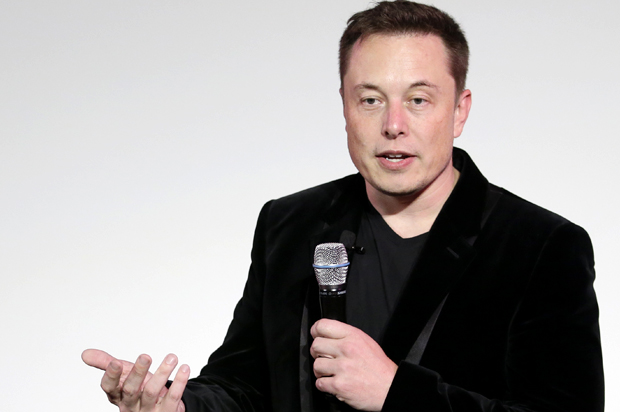“Funding secured:” those two tweeted words may have cost Elon Musk his CEO title at Tesla.
News broke on Thursday that the Securities and Exchange Commission (SEC) had filed a lawsuit in federal court accusing Musk of committing fraud by way of making false public statements on Twitter that had the potential of being harmful to investors.
The claim stems from one of Musk’s Twitter rants over the summer, in which he said he had “funding secured” to take the company private.
“Am considering taking Tesla private at $420. Funding secured,” Musk tweeted on August 7. “Shareholders could either to sell at 420 or hold shares & go private.”
The SEC alleges that Musk never discussed such a deal with any potential financing partners, in addition to alleging he knew going private was not a certain endeavor. The SEC’s complaint says Musk’s tweet caused Tesla’s stock price to increase over six percent on August 7, and caused a disruption in the market. The tweet sparked confusion and concern among investors and followers on Twitter. Board remembered reportedly scrambled to assemble damage control after the tweet.
Am considering taking Tesla private at $420. Funding secured.
— Elon Musk (@elonmusk) August 7, 2018
The complaint, which was filed in federal district court in the Southern District of New York, is seeking “a permanent injunction, disgorgement, civil penalties, and a bar prohibiting Musk from serving as an officer or director of a public company.”
In a statement released by Tesla, Musk said the move was “unjustified” and that he was “deeply saddened and disappointed.”
“I have always taken action in the best interests of truth, transparency and investors,” Musk said. “Integrity is the most important value in my life and the facts will show I never compromised this in any way.”
The SEC backed up its lawsuit by stating that corporate leaders hold “positions of trust.”
“An officer’s celebrity status or reputation as a technological innovator does not give license to take those responsibilities lightly,” Steven Peikin, Co-Director of the SEC’s Enforcement Division, said in statement.
Stephanie Avakian, Co-Director of the SEC’s Enforcement Division, added that issuing truthful statements are among many of a CEO’s responsibilities.
“Taking care to provide truthful and accurate information is among a CEO’s most critical obligations,” Avakian said in statement. “That standard applies with equal force when the communications are made via social media or another non-traditional form.”
The tech industry from which Musk springs has a reputation for scoffing at government regulators, and now, Musk joins the ranks of Silicon Valley business elite to face similar charges. In August, the SEC filed a complaint alleging that Michael B. Rothenberg and his firm misappropriated millions of dollars — including an estimated $7 million in excess fees, which the complaint claims were used to pay for private parties at resorts and Bay Area sporting arenas. His San Francisco-based firm targeted investments in millennial entrepreneurs and “frontier technology” companies.
Previously in March 2018, the SEC charged biotech startup Theranos Inc., its founder and CEO Elizabeth Holmes, and its former President Ramesh “Sunny” Balwani, for allegedly defrauding investors.
At the time, Peikin of the SEC made a statement that was similar to the one made for Musk’s case.
“Investors are entitled to nothing less than complete truth and candor from companies and their executives,” the Theranos statement read.
Tom Gorman, a partner at Dorsey & Whitney LLP, and a former SEC Enforcement senior counsel, doubted that the SEC was singling out Musk.
“I do not see this case as picking on Wall Street,” he explained in an email. Gorman explained that “the SEC believes that Mr. Musk did this to punish the short sellers,” though Gorman didn’t agree with that assessment. “First, the short [sellers] are usually professional traders who can withstand some market movement and may be at least partially hedged. Second, shortly after the Tweet the reports were that the shorts made over $1B from the share price movement although last week a class action was filed against the firm on behalf of the shorts who lost money.”
“In any event I think this is just the SEC bringing a case they think is merited,” he added.
Gorman deconstructed the troublesome tweet to explain why he did not think it was of any import. “In a few words Mr. Musk said 1. I am thinking about taking the company private and 2. Funding Secured. The first part is as critical as the second. ‘I am thinking’ is a projection of what might come in the future—not a done deal. Thus one does not expect to see the usual trappings of a corporate deal such as Letters of Intent, draft documents, each point nailed down and others. Funding secured by all accounts referenced the discussions Mr. Musk had with the Saudi wealth fund which could fund the deal and lead him to believe they were agreeable. That should be considered along with the fact that Mr. Musk has for years been most successful at raising capital for the firm.”
Gorman said that these two points, in his opinion, don’t warrant SEC action.
“In the end while I agree that the way this was done is not good corporate governance or compliance it is also not an SEC enforcement action and that is really the ultimate question here—is this a government enforcement action?” he asked. “The answer is no.”

